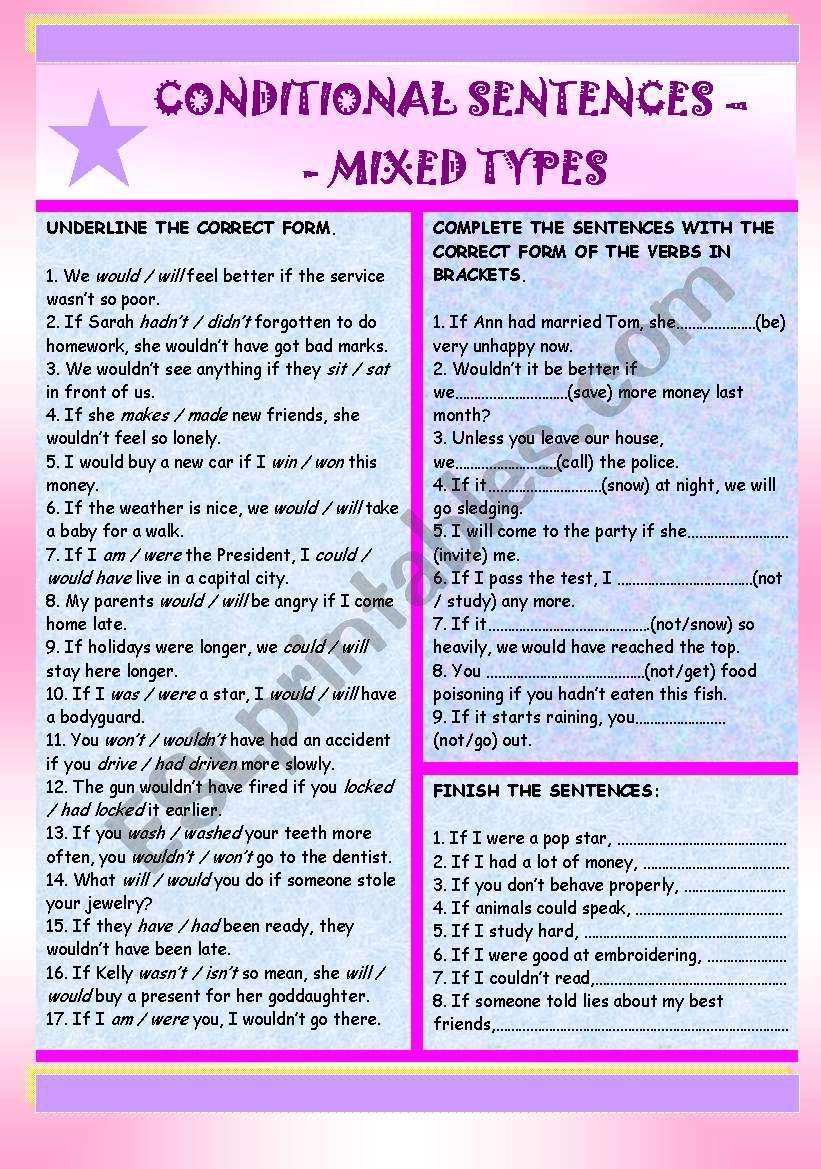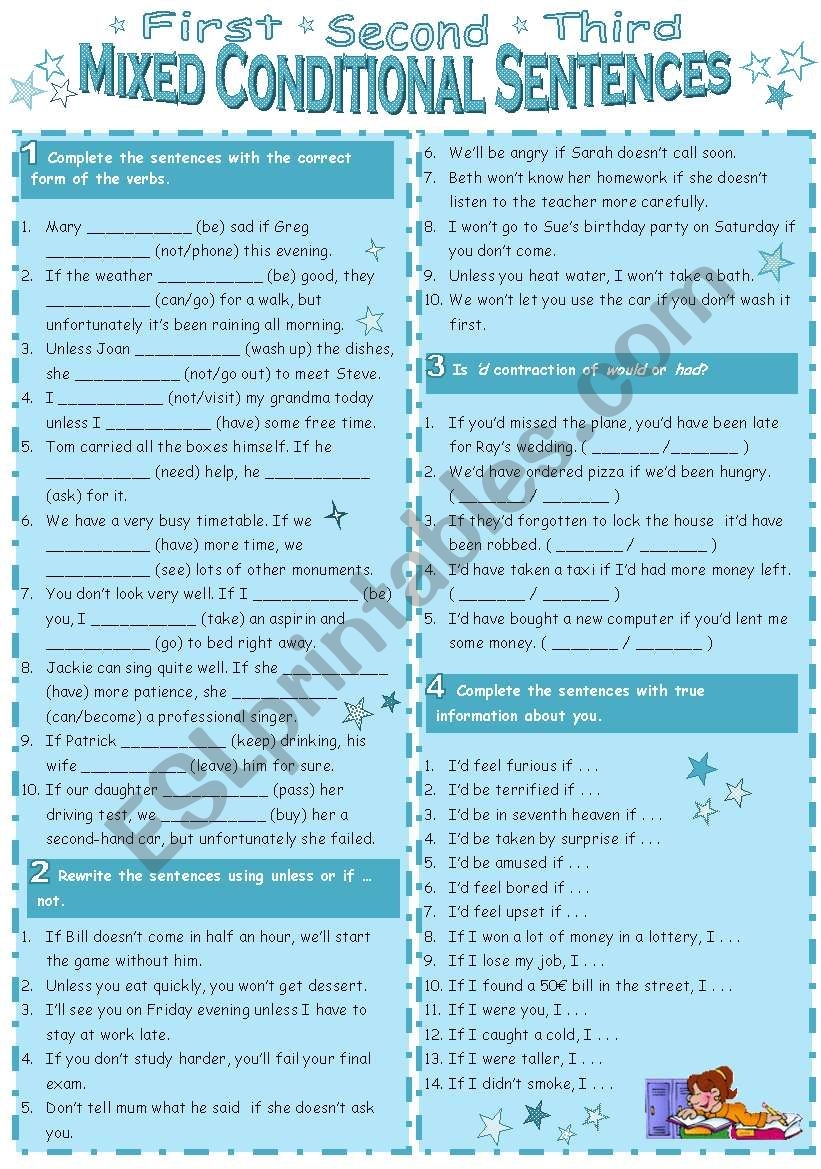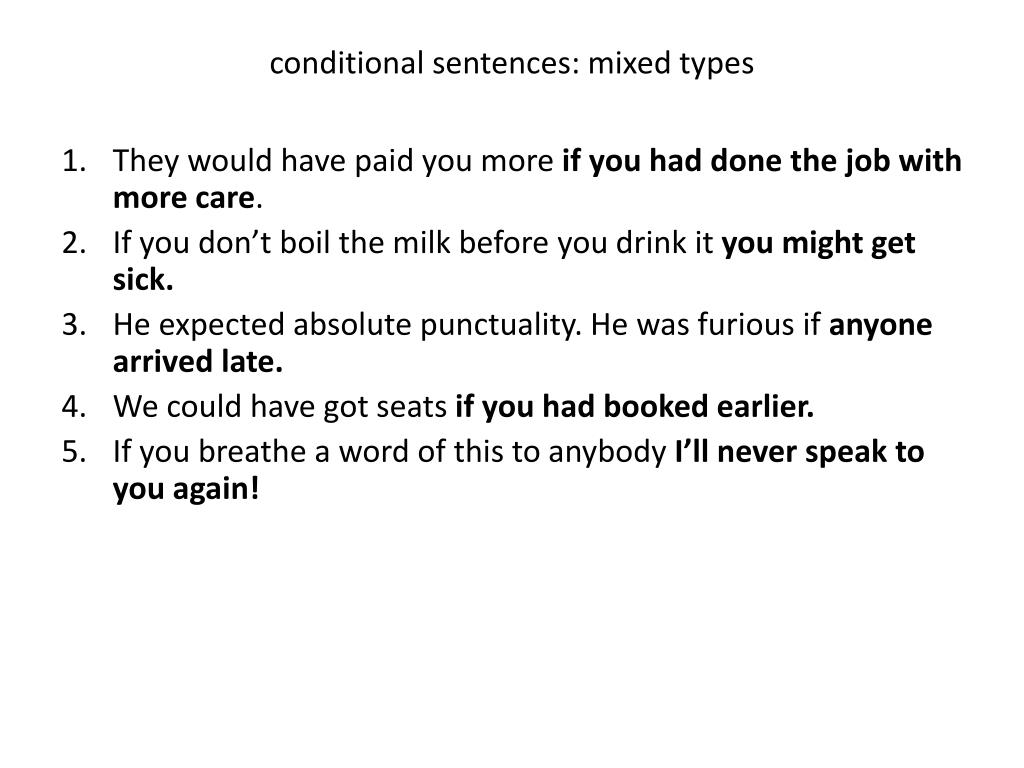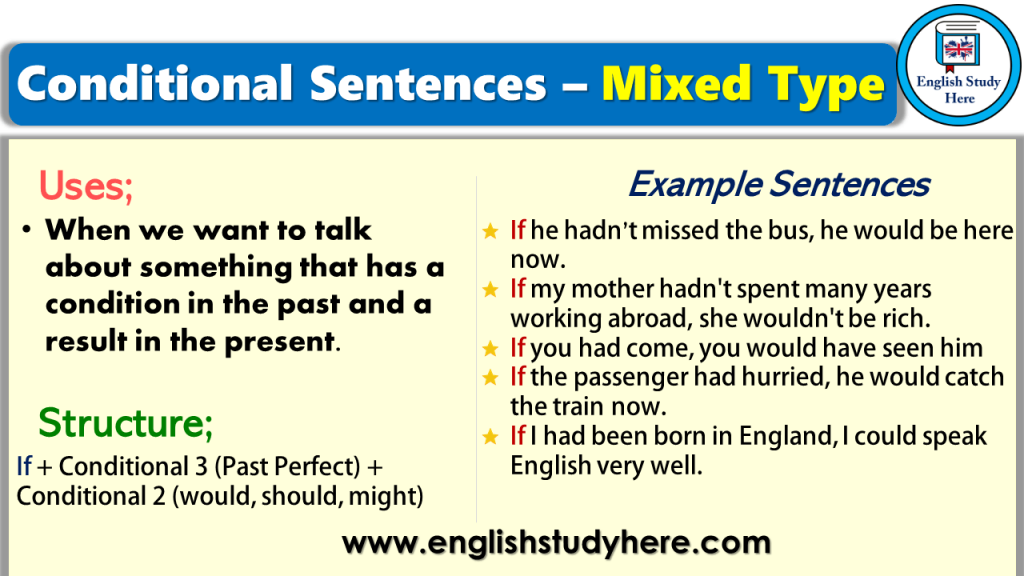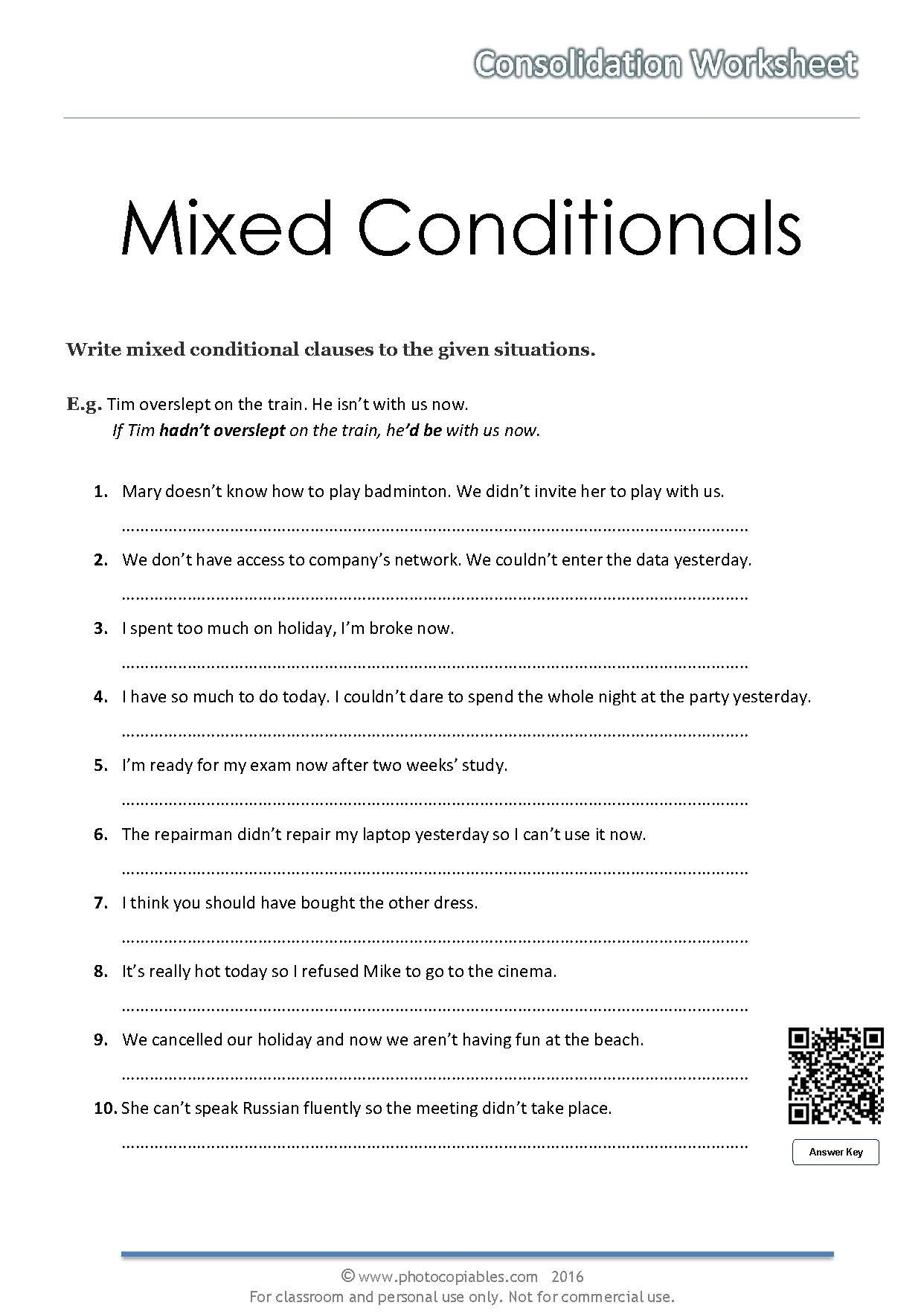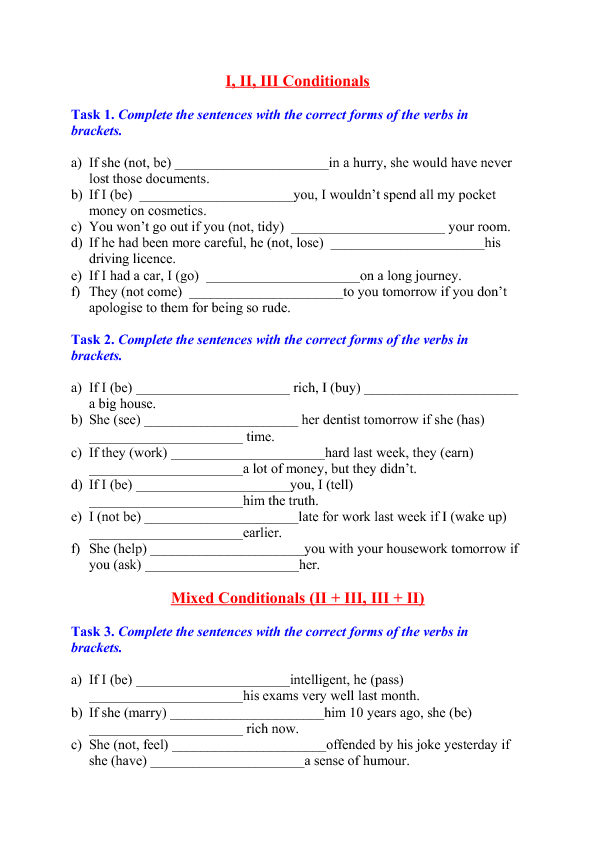Mixed Conditional Sentences
Mixed conditional sentences are a combination of the two main types of conditional sentences: the first conditional and the second conditional. These sentences are used to talk about hypothetical situations in the past or future and their probable results. They are formed by mixing elements of the first and second conditional structures.
In mixed conditionals, the if-clause expresses a condition that is contrary to reality or unreal in the present or future, while the main clause expresses a result that is contrary to reality or unreal in the past. This combination allows speakers to describe a situation that did not happen in the past but could have had different outcomes if certain conditions were met.
Examples of Mixed Conditional Sentences
One common example of a mixed conditional sentence is: “If I had studied harder in school, I would have gotten better grades.” In this sentence, the if-clause uses the past perfect tense to express a condition that did not happen in the past (studying harder), while the main clause uses the conditional perfect tense to express a result that did not happen in the past (getting better grades).
Another example of a mixed conditional sentence is: “If I were rich, I would travel the world.” Here, the if-clause uses the past subjunctive tense to express a condition that is unreal in the present (being rich), while the main clause uses the conditional simple tense to express a possible result in the future (traveling the world).
Mixed conditional sentences can also be used to express regret or wishful thinking about the past. For example, “If I had known you were coming, I would have baked a cake.” In this sentence, the speaker expresses regret for not knowing about the visitor’s arrival in the past and the missed opportunity to bake a cake.
In conclusion, mixed conditional sentences are a versatile and effective way to talk about hypothetical situations in the past or future and their possible outcomes. By combining elements of the first and second conditional structures, speakers can convey complex ideas about unreal or contrary-to-reality conditions and results. Practice using mixed conditionals to improve your English language skills and add depth to your conversations.
